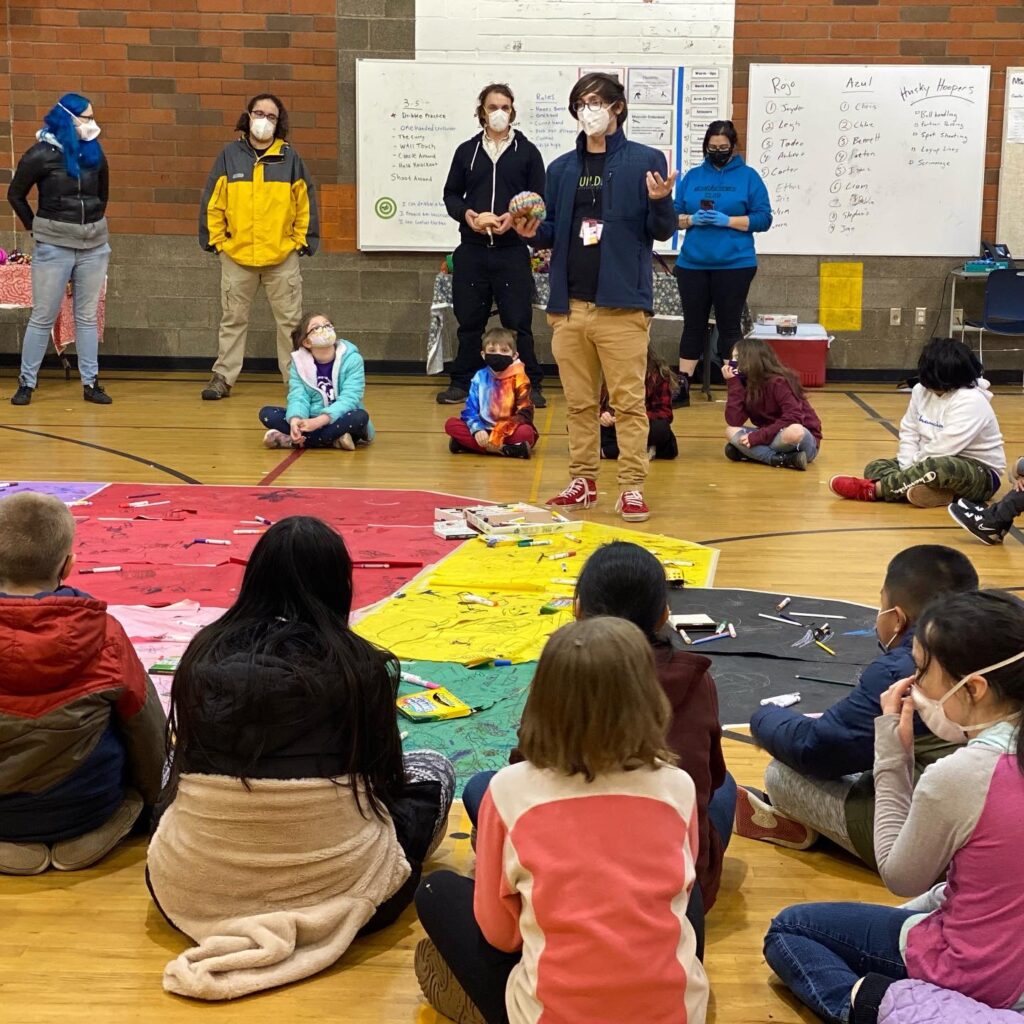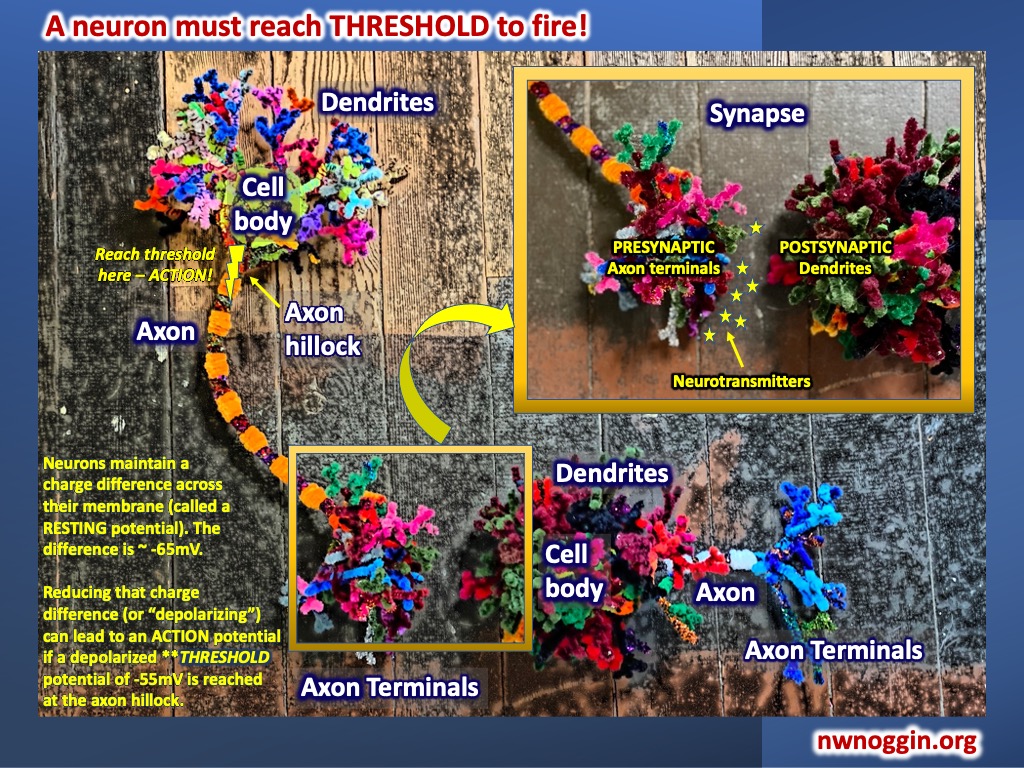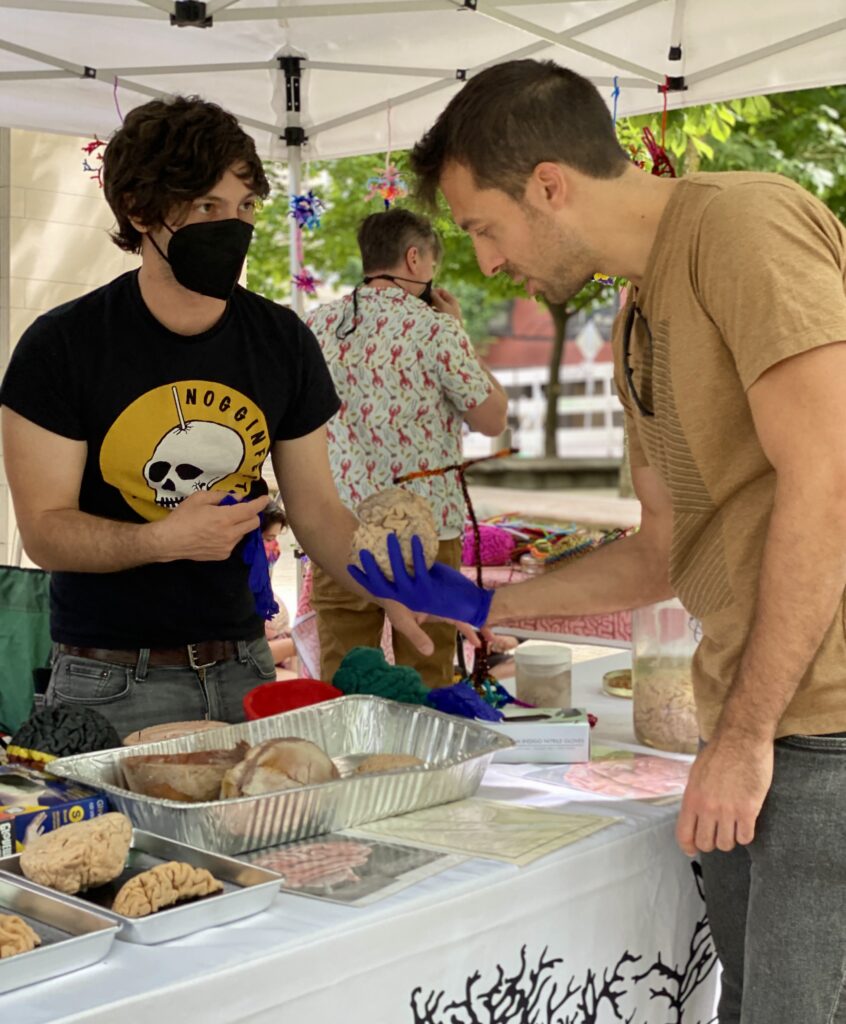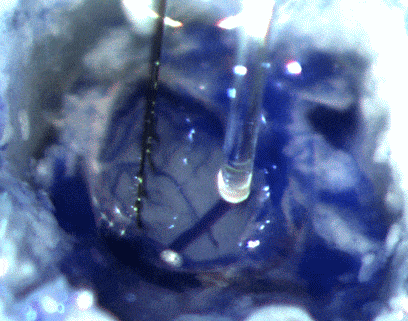Post by Bradley Marxmiller, undergraduate in Biology and Interdisciplinary Neuroscience at Portland State University. Bradley followed up this post with more details on his experience in Dr. Atheir Abbas’s lab at the Portland VA Hospital/OHSU: Learning with Light.

The most common question I get from fellow students interested in science careers is:
How did I find a job working in a lab?
Partially, you have to be in the right place at the right time.
The leader of the lab (PI or Principal Investigator) may want to add you to their team (paid or unpaid) but not have the capacity or funding to make it possible. However, if you never go to the right places you can’t be there at the right time.
Reach out
Therefore, a vital part of landing a space in a lab can be networking and putting yourself out there. Knowing some PIs or lab techs gives you not only a time advantage (knowing there’s an opening early) but also gives you a better idea of where you might fit in.

Rather than looking for job interviews right away, it is often easier to land an informational interview–where you are asking questions about their research and/or how they made it to where they are today. One of the most important questions you can ask, after getting to know the person and giving them your own elevator pitch, is: “Do you know anyone who I should talk to about my interest and would you send an introductory email for me?” – if their studies or methodology don’t line up with what you want to work on. This not only gives you a good idea of who to talk to next but it also works as a de facto reference, someone who thinks highly enough of you to introduce you.
Once you have found a lab that interests you and there is some communication, your chances of being around when the next spot in the lab opens up is much greater. It’s also a sad reality that many labs don’t have the funds to hire undergraduates, so very often you might have to volunteer or otherwise come with funding. Consider looking into NIH or local research programs to supplement or replace enough income to make volunteering a realistic option, if it isn’t something you believe you could afford at the moment.
LEARN MORE: NIDA Summer Research Internship Program
LEARN MORE: NIH TRAINING PROGRAMS IN THE BIOMEDICAL SCIENCES
Portland State University has multiple programs to help students find laboratory training, including Build EXITO, U-RISE, Louis Stokes Alliance for Minority Participation (LSAMP), and the McNair Scholars Program. PSU also offers an interdisciplinary neuroscience minor, where you can earn academic credits while participating in research. Joining outreach with Northwest Noggin can introduce you to graduate student volunteers, who may have up to date knowledge about which labs are seeking help.

LEARN MORE: Noggin Calendar of Events
LEARN MORE: Noggin Bloggin
Other Northwest universities may offer additional programs, and a quick email to the department you’re interested in is a good way to see what might be available in your area.
Finding my lab
Personally, I spent a year in Build EXITO working with mentors, learning about informational interviews, getting my CV updated (pro-tip is to have mentors and professors proofread these, as we are often not always the best at realizing our talents), and getting familiar with the terminology and methods used in neuroscience before I really started looking for a lab. I then reached out to a number of people and set up a few informational interviews. All of these experiences were interesting but most didn’t amount to much other than networking.
However, one of the people I talked to linked my interest in animal models of schizophrenia with a PI that they knew from OHSU: Dr. Atheir Abbas. Having them send an introduction email, I think, really set the stage for me to be successful in getting a position at the lab. Of course I did the hard work of finding funding (through EXITO) and being able to discuss published works from the lab but having that personal introduction, “you and this person have similar interests” made it easier, on both sides, to relax and have fun talking about something we are both passionate about. If you are anything like me (slightly nerdy and socially awkward), it’s really easy to get inside of your head or let self-doubt or awkwardness get in the way of meeting normal people–much less PIs who you look up to. However, one thing that kept me going through some awkward meetings was a mentor mentioning that most people who work in science are either socially awkward or work with many people who are. My discomfort was something they would recognize and be used to more than a general person on the street, which counterintuitively made me more comfortable from the start.

LEARN MORE: Learning with Light (My experience in the Abbas lab)
Keep looking
A final piece of advice on trying to find a lab position is to expand the search: don’t just look at one university or get disheartened if you can’t find a lab doing the exact experiment you want to be doing. By expanding your search to other local universities or industry labs that use techniques that you could use on future experiments you increase your odds of finding a good fit, either to build the skills you need or perhaps to find a new passion you didn’t realize you had. Below is a non-exhaustive list of institutes and businesses in the pacific Northwest that may have laboratory positions or PIs to investigate:
Portland State University Biology Department Labs
Portland State University Chemistry Department Labs
Oregon Health and Science University Volunteer opportunities
OHSU’s Vollum Institute
Oregon National Primate Research Center


